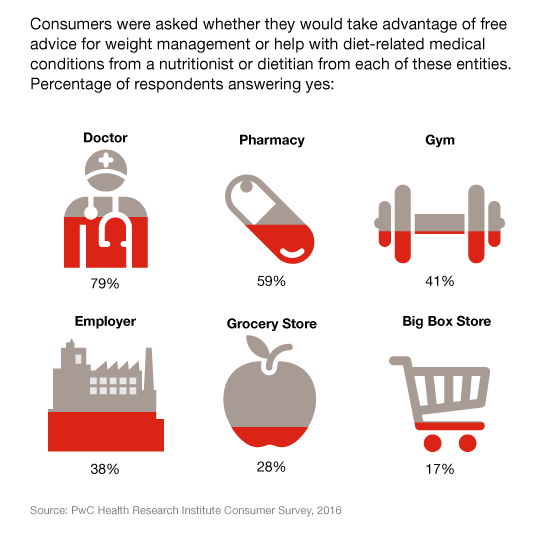
PWC “Top health industry issues of 2017: A year of uncertainty and opportunity”.
Print
21 December 2016
PWC
PwC Health Research Institute’s annual report highlights the forces that are expected to have the most impact on the healthcare industry in the coming year.
Top 10 health issues
Many of 2017’s Top issues highlight how this shift toward value is occurring, and how traditional health organizations and new entrants are responding to it. There are three main tactics that organizations will use to address this shift to value – they will adapt, they will innovate and they will build new programs and approaches to their work.
Adapt for value
1. Under a new administration, the fate of the ACA remains unclear
2. Pharma’s new strategic partner? Patients
3. Easing the training wheels off value-based payment
4. Insert your card here for healthcare
Innovate for value
5. Paging Dr. Drone: It’s time to prepare for emerging technologies
6. The battle against infectious diseases sparks invention
7. Rx cauliflower: Nutrition moves to population health
Build for value
8. Putting the brakes – gently - on drug prices
9. A year of new partnerships and collaborations
10. Preparing medical students for work in a value-based world
Under a new administration, the fate of the ACA remains unclear
President-elect Trump has made repealing and replacing the ACA one of his top priorities. A few weeks after his election, details of his plans were scarce, though he said in interviews that consumers would not experience lapses in coverage should the law be repealed. The president-elect has also indicated that he may keep popular parts of the law, including the requirement that insurance coverage cannot be denied based on health state or age. This requirement generally causes premium costs – consumers’ most important consideration when choosing a health plan – to climb.


Paging Dr. Drone: It’s time to prepare for emerging technologies
While the US health industry lags behind other industries, such as retail and telecommunications, in deploying emerging technologies such as artificial intelligence, drones and virtual reality, 2017 is the year to prepare for the eventual arrival of these technologies and their impacts on business models, operations, workforce needs and cybersecurity risks.
Rx cauliflower: Nutrition moves to population health
As established health organizations and new entrants focus on nutrition as a way to prevent costly medical problems and improve the overall health of the populations they serve, the demand for these services among populations fuels growth and innovation. A recent HRI survey found that consumers want more nutritional advice, especially from their healthcare resources.
All Portfolio
MEDIA CENTER
-
The RMI group has completed sertain projects
The RMI Group has exited from the capital of portfolio companies:
Marinus Pharmaceuticals, Inc.,
Syndax Pharmaceuticals, Inc.,
Atea Pharmaceuticals, Inc.


